General Information
Germany, officially the Federal Republic of Germany, is a country in Central Europe. It is the 18th-most populated country in the world (second in Europe) and the 62nd-largest (eighth in Europe).
The world leader in a number of industrial and technological sectors, Germany is the third-largest exporter and importer of goods.
It is a developed nation with a very high standard of living (sixth on the global ranking).
Population: 84 118 700 (Worldometers)
Average Age: 45.7 (Worldometers)
GDP: 3.8 bln USD (World Bank) — 2020
Official language: German
The Gaming Market
The German gaming market is the largest in Europe and the fifth-largest in the world.
Given the importance of the gaming market for the digital economy, the federal government in 2019 adopted a financial support program targeting the industry. Every year, the Federal Ministry of Transport and Digital Infrastructure sets aside 50 million euros. Most states in Germany also provide funding for the local gaming industry.
Germany has more than 500 companies working on game development and distribution, totaling 11,000 jobs. With that said, it’s important to underline the industry’s youth and dynamism: half of the companies are less than five years old, and 70% of them have no more than ten people working in them. Lots of educational institutions, both public and private, offer courses and degree programs designed specifically for the gaming industry.
Germany also plays an important role in the eSports industry. The country hosts a few of the largest eSports events on the planet: ESL One, LEC Riot Games, PUBG Global Invitational, and more. ESL Gaming itself, the oldest eSports organization in existence, was founded and is headquartered in Cologne. By some estimates, that sector of the German market totaled 77 million euros in 2019, up 27% from the previous year. The fact that more than 220 sporting clubs in the country have their own eSports section is a testament to the industry’s popularity.
In addition to all of the above, Cologne hosts Gamescom, the world’s largest trade fair for video games, every year, with more than 370,000 people stopping by in 2018 to visit over 1,000 stands. The streams in 2020 picked up two million views.
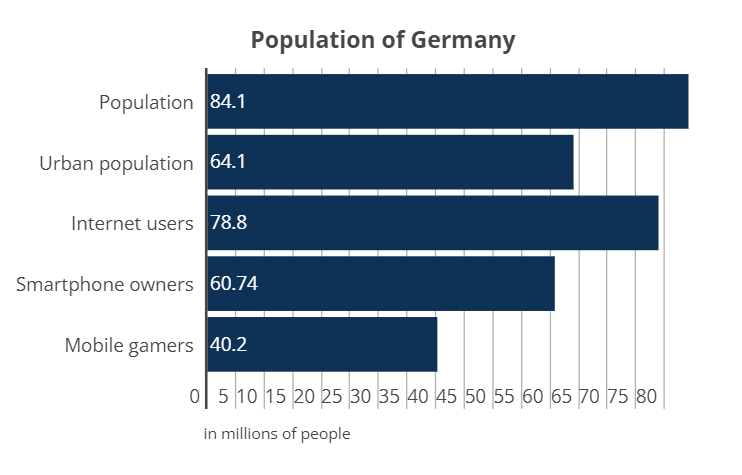
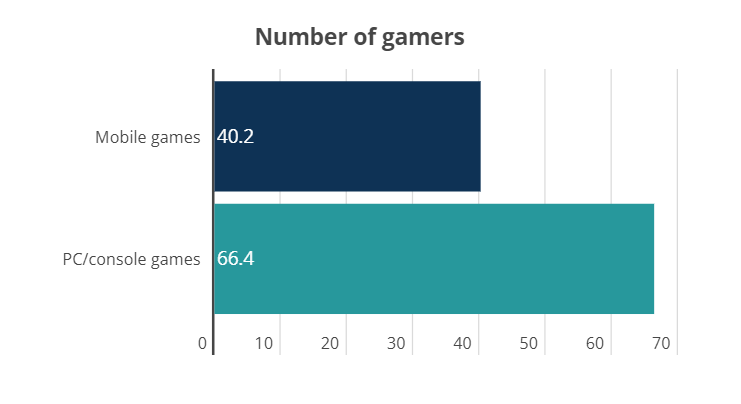
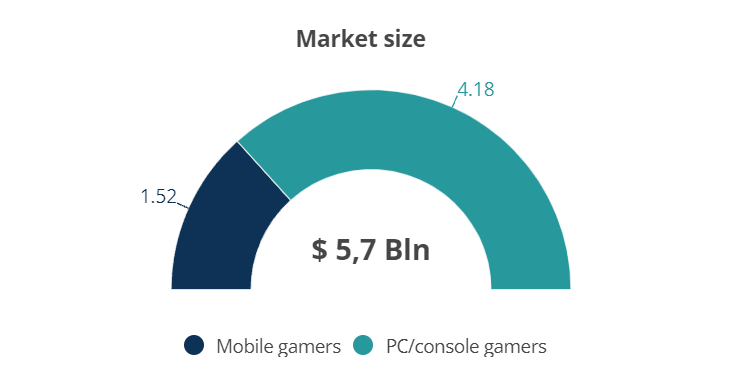
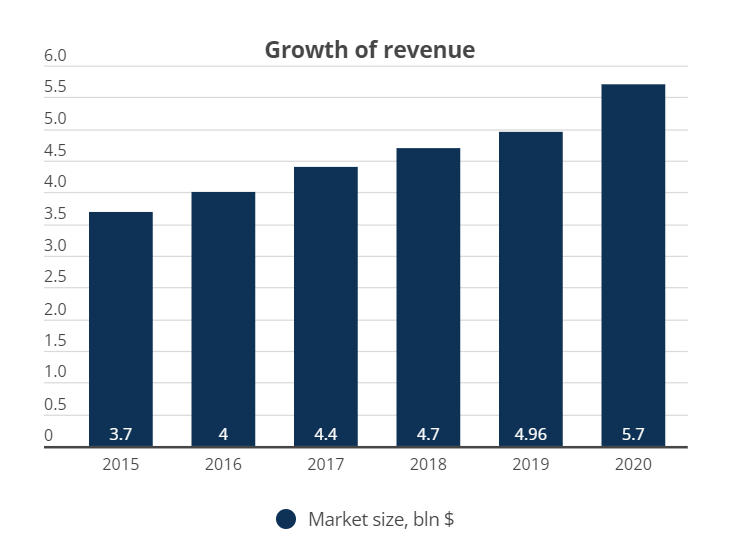
Player Statistics
More than 30 million Germans play video games, 36% regularly and 42% on occasion. Currently standing at 36.4, their average age continues to grow. A year ago, the average age was 36.1, and five years ago it didn’t even reach 31. That tendency is fed by the continued influx of gamers over the age of 50. In 2019, approximately 10 million people older than 50 played video games. That totals 32% of all gamers.
The most common game platforms in Germany are mobile devices. In-game purchases are the biggest revenue source. 48% of gamers play on computers and consoles, while 42% only play on computers and 10% only on consoles.
Mobile games make up the largest player base in the German market. 19.5 million German gamers play on their smartphone; 11.2 million play on their tablet. On average, mobile gamers in Germany play two hours a day.
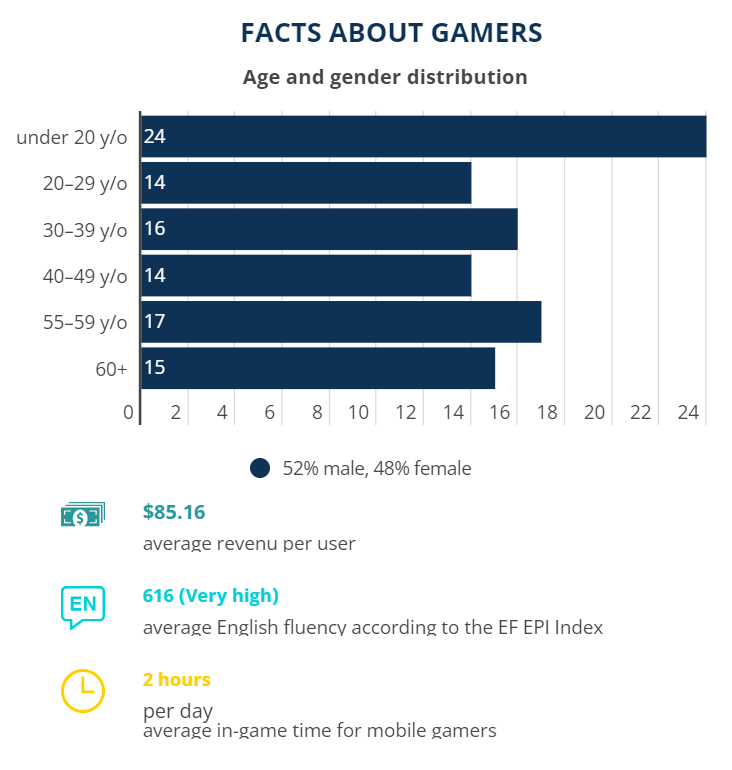
Popular game genres (Statista):
- Strategy.
- Action.
- Action-adventure.
- Adventure.
- Role-playing.
For mobile games (AdColony):
- Action-adventure.
- Puzzle.
- Simulation.
- Sports.
- Racing.
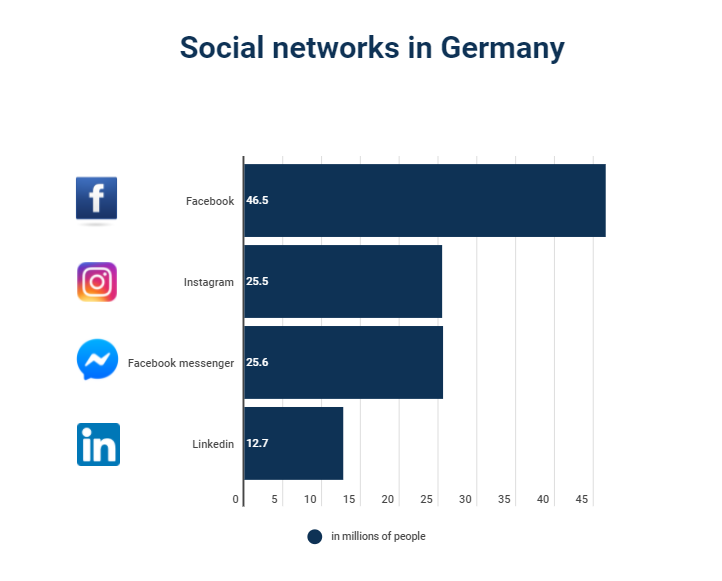
Developers
Germany currently has around 600 companies developing and publishing games. For the most part, they’re concentrated in Berlin, Hamburg, Munich, Frankfurt, and Cologne.
Some local developers that deserve recognition are InnoGames, Goodgame Studios, Bigpoint, GameDuell, Wooga, and Yager Development. As a rule, they specialize in browser-based and mobile games. The country also hosts local offices of international companies like Capcom, Square Enix, Epic Games, Tencent Games, and Wargaming Mobile. In addition, Germany is home to flourishing indie studios: Mooneye Studios, OneManOnMars, Maschinen-Mensch, Megagon Industries, Stratosphere Games, etc.
Localization
There are several factors to bear in mind when localizing into German:
- Different German dialects. Germany has a wide range of dialects and regional variants that differ from each other phonetically, lexically, and grammatically.
- Anglicisms. Germany has a concept called Denglisch (Deutsch + Englisch), which is a mix of the two languages. Instead of long German words, Germans often use short English ones. For example, there’s Handy, which replaces the longer word Mobiltelefon, Hi for Hallo and other greetings, and Okay/OK for verstanden, natürlich, abgemacht, and other options.
- The length of German words. German words often have more letters than would fit within string limits. For example, promo is Sonderangebot or Angebot, and reward is Belohnung. If you need to make sure you fit a text into a game window without losing the meaning, you’ll have to find shorter synonyms. You can also use anglicisms like Offer or Reward.
- The German alphabet. The alphabet is based on Latin. In addition to the usual Latin letters, however, there are also umlauts (Ä ä, Ö ö, Ü ü) and the ligature ß (Eszett). It sometimes happens that you need to build them into the game code, otherwise you’ll end up with an error.
- Formal/informal style and gender neutrality. The style you pick for the game you’re localizing depends on the plot, the situation, the personalities of the characters, and how the characters relate to each other. Most importantly, maintain consistency and avoid skipping between Sie (formal) and du (informal) over the course of a single dialog. You also need to clarify the gender of each character. With how many rules there are for German grammar, forgetting to check can cause problems when you pick the wrong adjectives or aren’t sure whether to use er, sie, or es. A character’s gender can also dictate their profession. For instance, Sam might be a male teacher (der Lehrer) or a female teacher (die Lehrerin). If you’re talking about a female character, it’s important to use the suffix -in.



